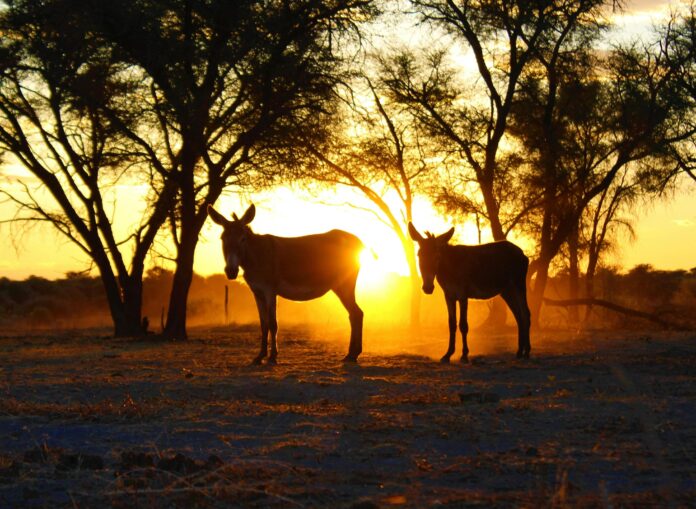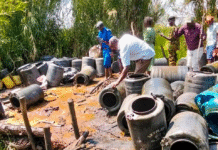In a decisive move to halt the illegal trade of donkeys in the Lower Eastern region, residents and security agencies have agreed to restrict the movement of donkeys from Kithyoko—situated at the Machakos-Kitui border—to other regions.
The resolution follows growing concerns that Kithyoko, particularly in Masinga Sub-county, has become a key supply hub for donkeys, fueling the illicit trade of donkey meat and skins. Stakeholders warn that if left unchecked, the trade could push the animals to near extinction.
Residents have expressed fears that increased slaughter rates pose a severe threat to donkey populations. To curb supply, they have proposed raising the price of donkeys to Ksh 10,000, arguing that a higher cost will deter buyers and reduce exploitative trade in the drought-prone region, where donkeys remain crucial for transportation.
Beyond the demand for donkey meat, their skins have become highly sought after, with reports indicating they are being used for medicinal purposes in China. The local community has vowed to take action against traders involved in the illicit business.
Speaking at a stakeholder meeting held at Kithyoko Catholic Church, Robert Maitethya, chair of the Association of Donkey Owners in Kenya (ADOK), questioned the ease with which donkeys are transported from Wajir and Garissa to Kirinyaga and Embu—two counties that have reported increased cases of donkey theft. He accused authorities of failing to inspect livestock at border points and criticized public health officials for allowing donkey meat to be handled under unsanitary conditions.
Security officials acknowledged the severity of the situation, citing poverty as a major driver behind the illegal trade. Julius Lemomo, Assistant County Commissioner of Ngutani Division in Kitui County, pledged to work with chiefs and village administrators to crack down on illegal donkey slaughter at the grassroots level. His counterpart, Maina Jonathan, Assistant County Commissioner for Masinga, assured residents that the rampant movement of donkeys between Kitui and Machakos will be put to an end.
Meanwhile, Joseph Mwongela from INADES Formation Kenya affirmed that efforts to combat the trade will continue with urgency. “We have the pen, the signature, and the bullet to stop this,” he said, signaling a firm commitment to enforcement.
Representing the Catholic Diocese of Kitui under CARITAS, Ambrose Musyimi accused the judiciary of frustrating efforts to tackle the illegal trade by granting bail and bond to known cartels. “These individuals are arrested today and set free tomorrow. The courts must stop enabling this trade,” he stated.
Musyimi further urged farmers to diversify their livestock and invest in goats and sheep instead of selling donkeys, given the critical role they play in daily livelihoods.
The resolutions were made following a one-day stakeholder meeting supported by Brooke East Africa, where participants emphasized a multi-sectoral approach to eliminating the donkey trade.



















